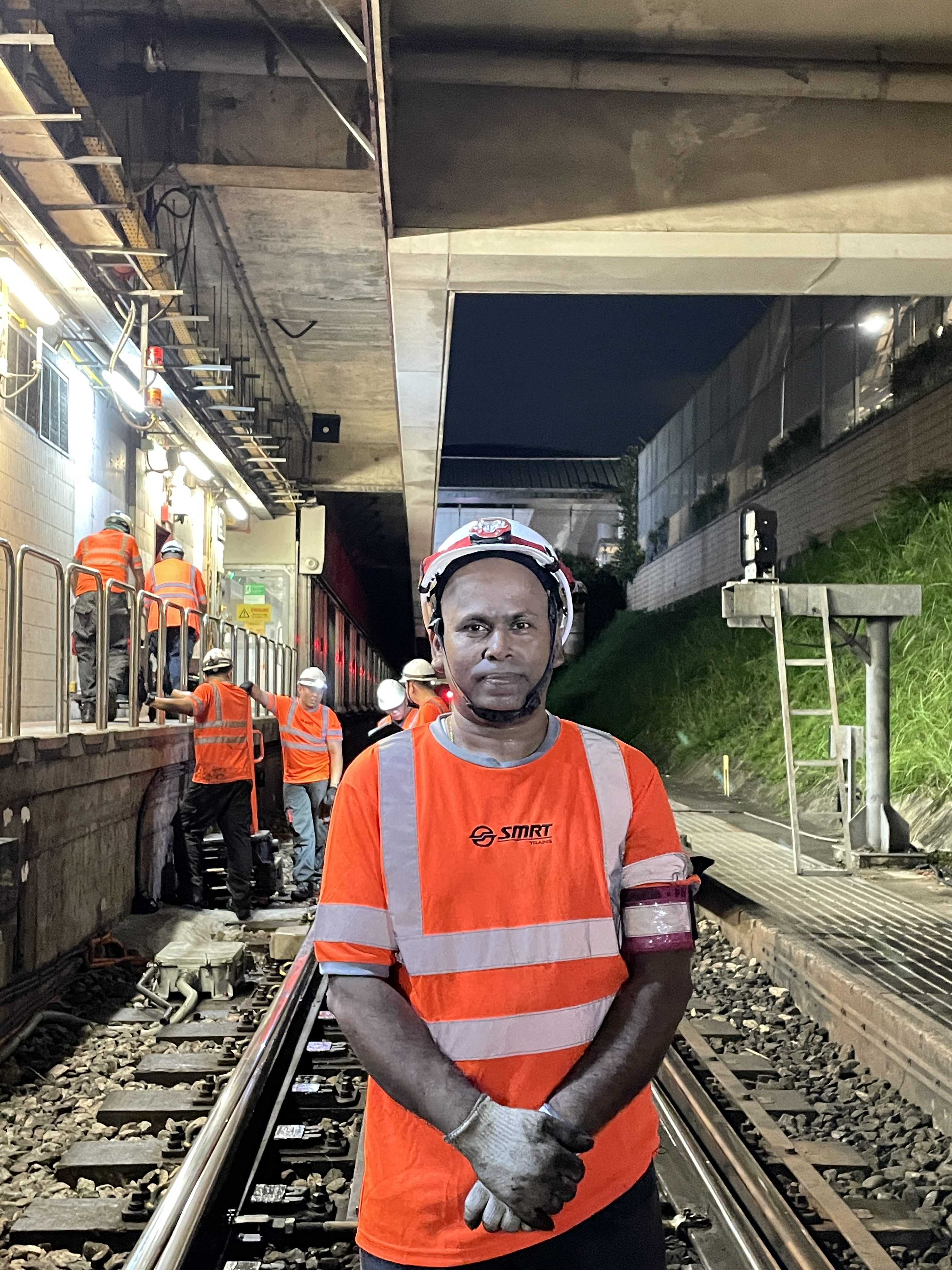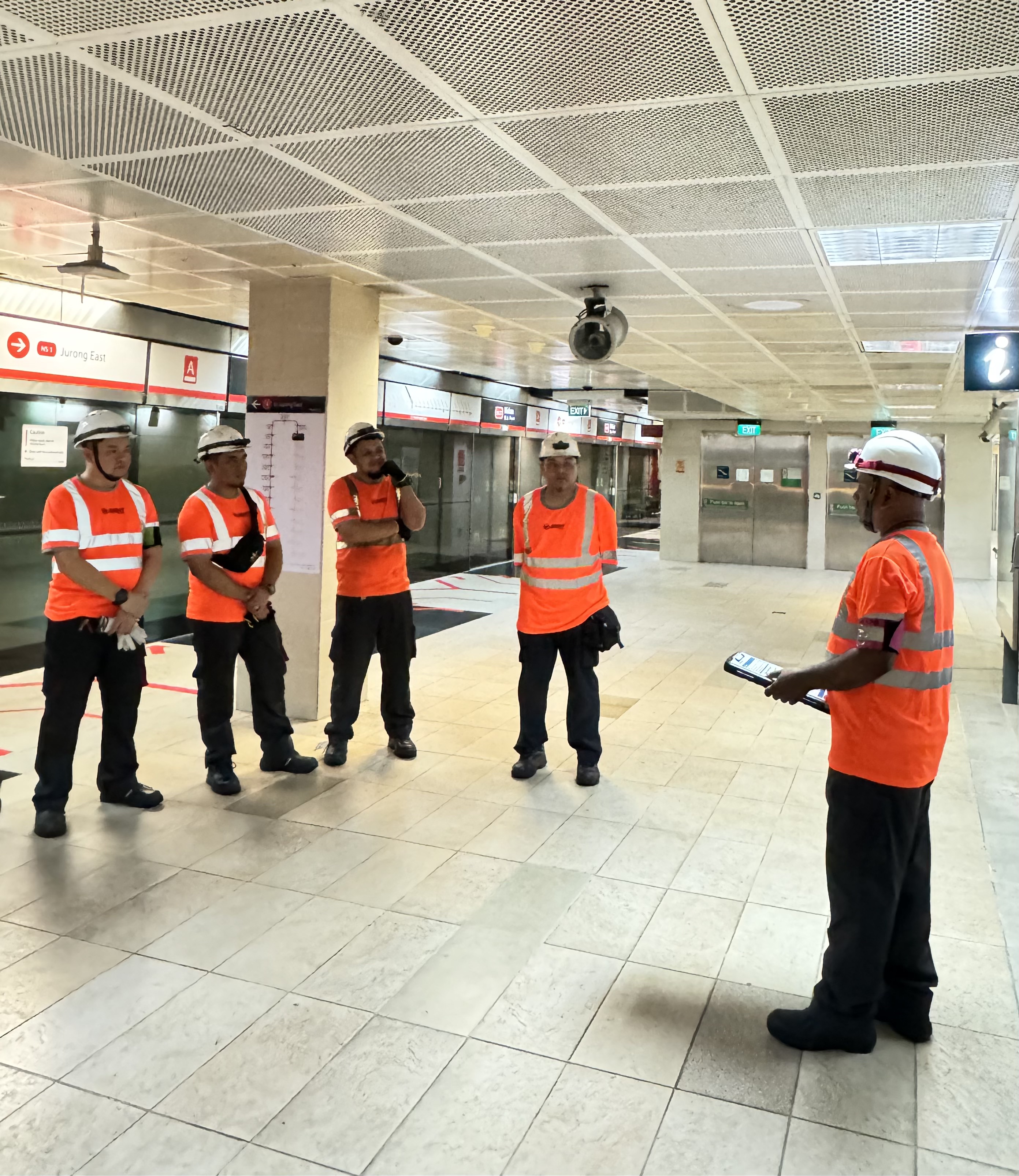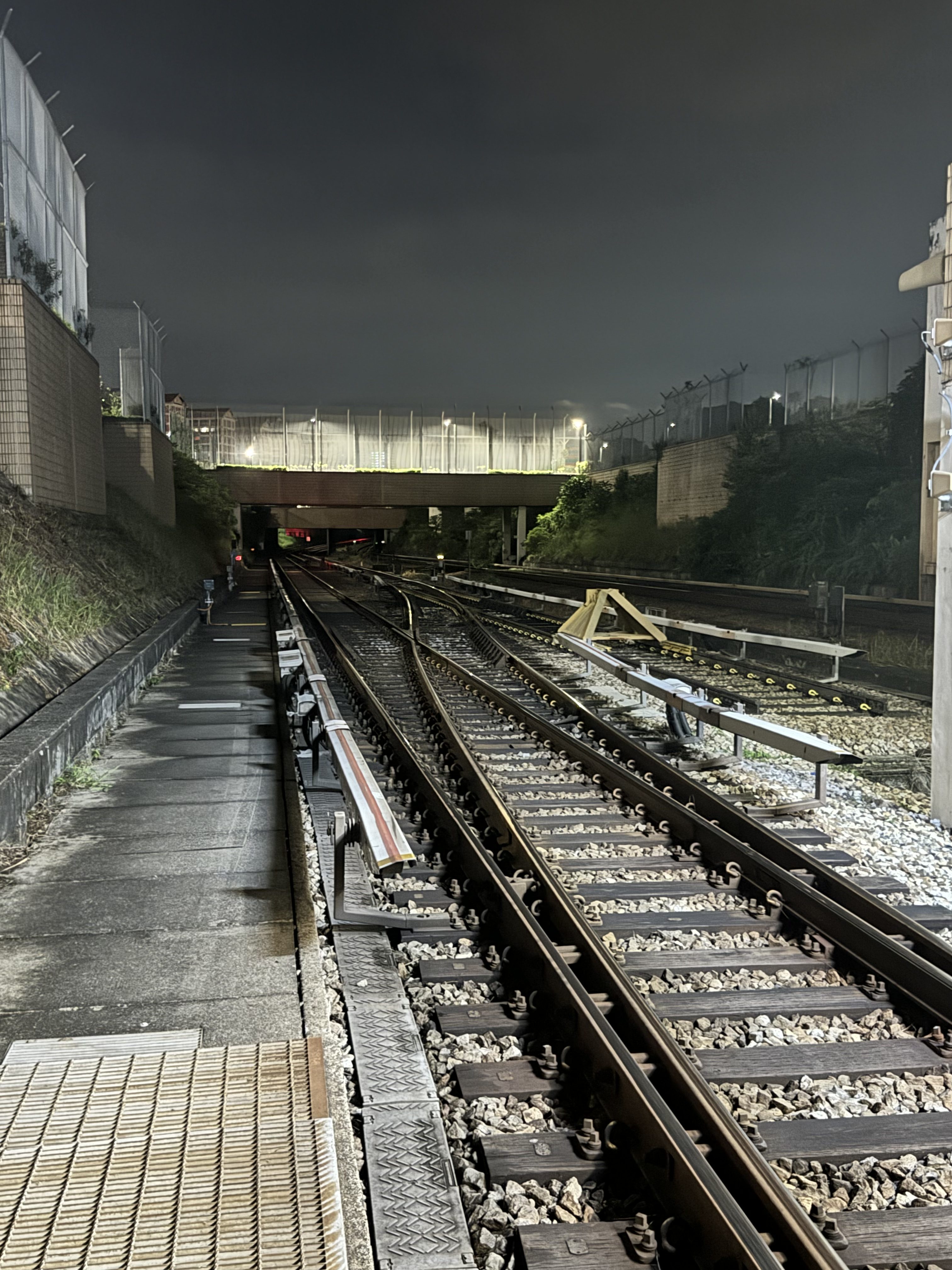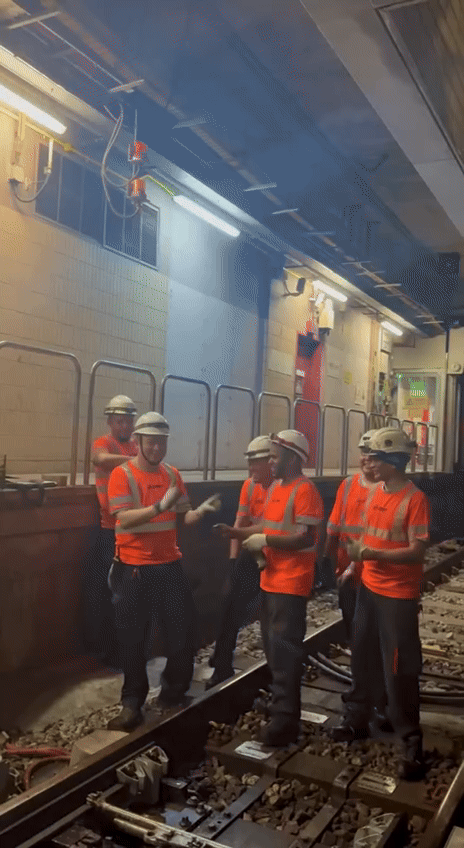It’s 10pm on a weekday night. What are you doing?
Perhaps you’re nestled on your couch, engrossed in the latest episode of a K-drama, or maybe you’re already settling in for an early night.
But for one man in Singapore, his day is just beginning.
At 10pm, Ananthan Ramesh, 50, is only preparing to start his shift as an assistant engineer at SMRT.
 Photo by Mothership
Photo by Mothership
As part of the point machine care team responsible for ensuring trains move between tracks smoothly, Ramesh works late hours after train services have concluded.
You might be wondering, what exactly are point machines?
 Photo by Mothership
Photo by Mothership
Simply put, they are mechanical installations that facilitate train movement between tracks, allowing for track changes.
Since these machines can only be serviced after daily train operations cease, the point care team typically begins their maintenance work around 1:30 am, in the wee hours.
Even after eight years on the job, Ramesh is undeterred by the late hours and shows no inclination to call it quits.
As someone accustomed to a typical 9-to-5 schedule, I was curious – how does he do it?
How can someone live a life in reverse, working while everyone else sleeps and resting while the world is awake?
And what keeps him going?
Work is just work
"Work is just work," Ramesh remarked during one of our conversations.
When I questioned him about the late hours and the physically demanding nature of the job, he simply shrugged and laughed, emphasising that working and facing challenges are two separate matters
I met Ramesh at half past midnight, still groggy from a brief nap before the interview.
While I struggled to stifle yawns, the 50-year-old appeared perfectly alert.
"I'm feeling good," he responded when I inquired about his well-being before commencing the day's tasks.
Though he expressed nervousness about our interview, he tackled his responsibilities without hesitation, swiftly attending to his duties.
 Photo by Mothership
Photo by Mothership
After a safety briefing with his team, we proceeded to the rail track, where they were replacing a point machine at the station.
Changing the point machines
The team members promptly got to work, assuming their designated positions and roles.
One member used a walkie-talkie to communicate with the control centre, while others began removing the old machine. Ramesh overseeing the operation.
I soon discovered that replacing the machine involved more than just swapping out the old one for a new one.
 Photo by Mothership
Photo by Mothership
It entailed various complexities, such as cleaning grease from the track parts, testing the new machine's precision in moving the tracks, and addressing safety concerns.
Ramesh explained that the task that day was relatively straightforward, as the point machine being replaced was conveniently located beneath the station.
However, other machines are situated farther away, sometimes up to 1 km from the station.
 Photo by Mothership
Photo by Mothership
These machines, weighing around 90 kg each, must be transported and serviced, a process that can take longer if it’s further away.
Ramesh’s team is just one of over 90 teams across the North-South East-West network working on the tracks every night to ensure the safety of passengers.
Standing there watching them work, I had a newfound appreciation for the smooth train rides I could get every morning.
Despite the job's physical demands, Ramesh and his team approached their tasks with enthusiasm, displaying no signs of exhaustion.
Camaraderie with colleagues
Teamwork is crucial, Ramesh emphasised, explaining that the job requires at least five team members to collaborate on overhauling and servicing the equipment.
But beyond that, the team relies on each other for support during challenging times.
“I appreciate it that whenever one of us gets tired, another person in the team will offer to cover so that we can complete the physically demanding tasks together.”
Their camaraderie was evident; they were more than colleagues – they were like brothers and friends.
 Gif via Mothership
Gif via Mothership
Right before I interviewed Ramesh, the rest of the team cheered him on playfully in a manner reminiscent of close-knit school boys.
Ramesh, in his reserved manner, just shook his head as he smiled at their jests.
He later mentioned that for his team, satisfaction comes from completing their work and ensuring passengers, including their own families, can commute safely on trains.
For his family
What about his own family?
Ramesh explained that he maximises his weekends and off days to spend quality time with them.
He has an older daughter who is in university and younger twin boys who are in secondary school.
"They're probably asleep by now," he chuckled. The time was around 2:30 am.
As he shared how he takes his family to the cinema or catches up with their daily lives, it became clear that he was a father who deeply cherished his family.
This, perhaps, is what he meant by "work is work".
The long hours may not bother him as much as they would someone like me, an unmarried Gen Z, as he works tirelessly to provide for his family.
No regrets
After eight years on the job, Ramesh harbours no regrets about his career choice.
Working at SMRT has afforded him opportunities for professional development and career advancement.
Having started as a technical officer, he has progressed to become an assistant manager leading his team.
 Gif via Mothership
Gif via Mothership
Although he’s away from his family at unusual hours, he also has a found family in his team.
“The team’s multicultural, so we celebrate each other’s cultural festivals,” he added.
At nearly 4am, as they completed their work, Ramesh's team cheered, wiping sweat from their brows and backs.
I was relieved to head home, but Ramesh and his team weren't done yet.
They would return to their base to compile reports while awaiting the resumption of train services.
Their shift wouldn't end until around 8:30am, when most people would be fighting against rush hour to head to work.
Ramesh nonchalantly explained this, showing no signs of exhaustion aside from his sweat-soaked shirt.
To me, it’s an impressive feat. To him, it’s just another normal day in his life.
Top photos from Mothership
If you like what you read, follow us on Facebook, Instagram, Twitter and Telegram to get the latest updates.



